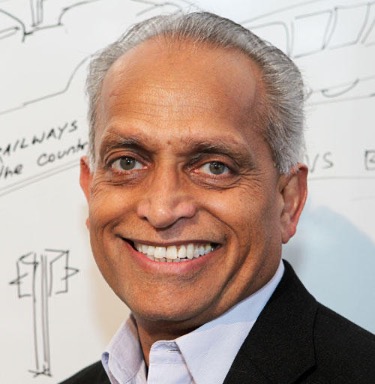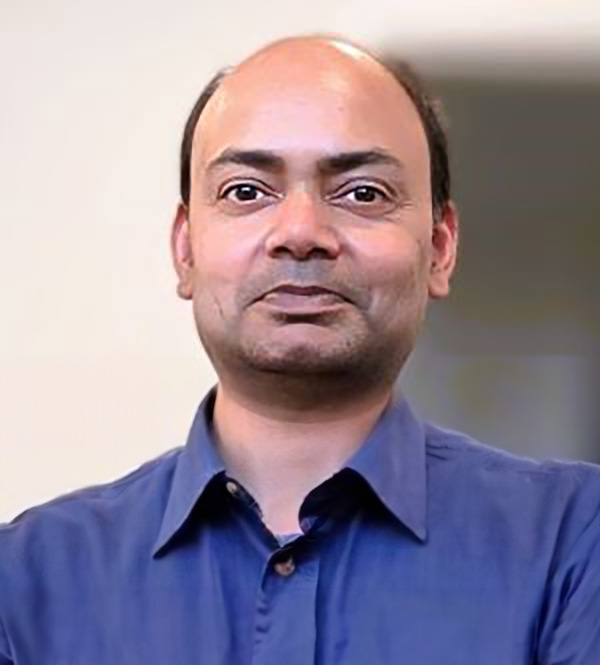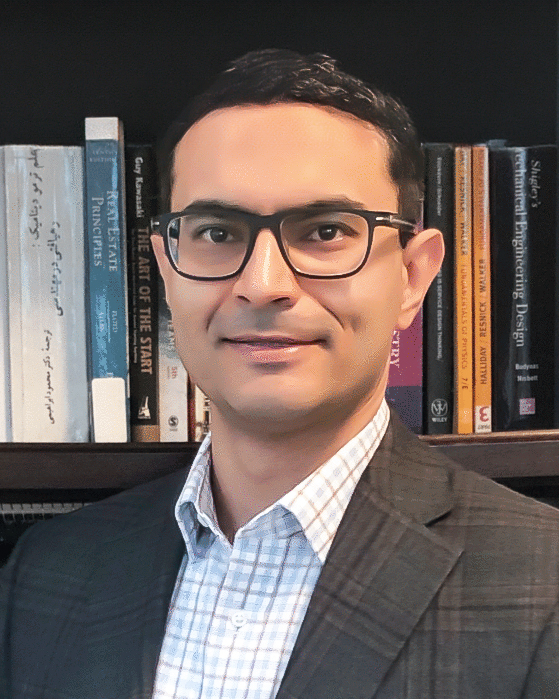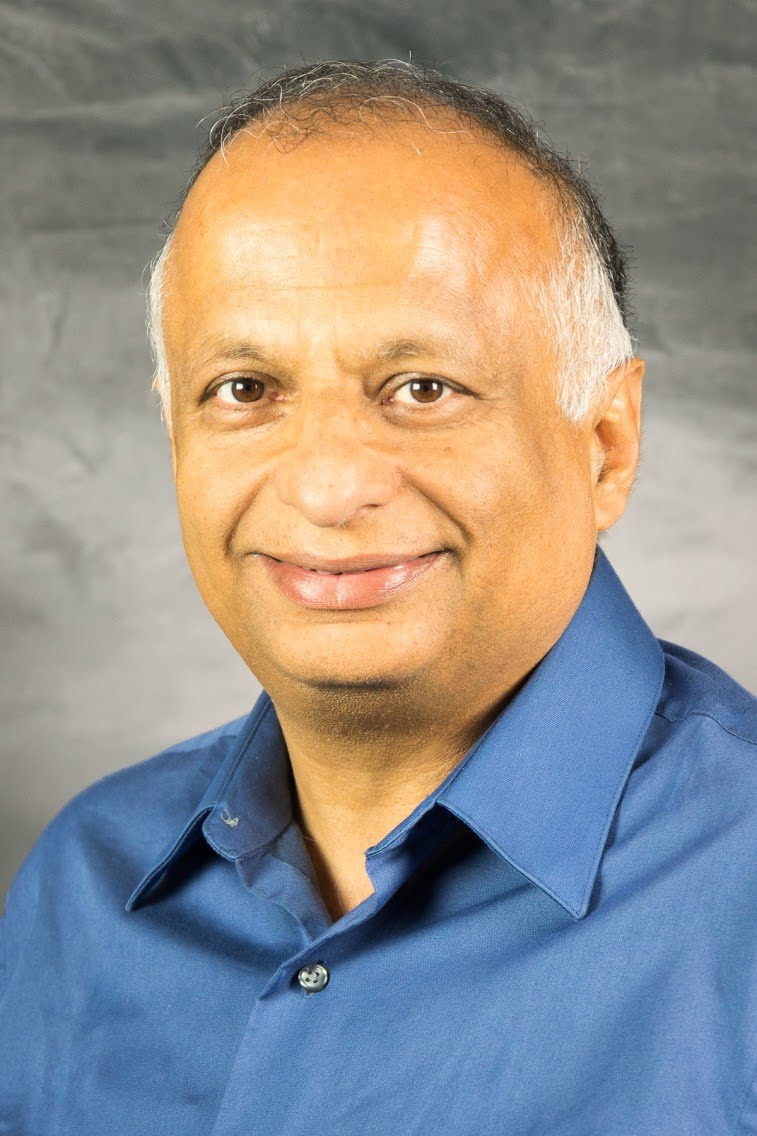Final Program for 2024
Day 1, Thursday 9:00am; Session 1
Welcome

9:05am
Energy and Thermal Management of Chips, Systems and Datacenters Necessitates a Return to Fundamentals
Chandrakant Patel
HP
The latter part of 20th century witnessed the rise of the compute utility made up of large-scale data centers housing densely packed compute, storage and networking equipment. The cyber age data centers became modern day factories requiring megawatts of power for the information technology (IT) equipment much like the process equipment in a factory of the machine age. Electrical energy supplied to the chips and systems in the data centers turned into multi-megawatts of heat energy which in turn required heat removal means. The active heat removal means also required power. While many innovative measures have been used for heat removal and energy management in data centers, there is a substantial gap in application of fundamentals of engineering when compared to the approaches taken by the contributors of the 19th and early 20th century machine age. As an example, machine age contributors performed exergy (2nd law of thermodynamics) analysis and deemed it necessary to build a hydro-electric plant as part of the design of an Aluminum factory. Indeed, majority of data centers today rely on the power infrastructure built by our predecessors. Given the inexorable trajectory of data centers strongly driven by AI, and associated demands on available energy, it is time we returned to such fundamentals particularly given the environmental challenges.
In my talk, I will present a holistic approach that traces the energy flow from a power plant to a chip, and from the chip core to the cooling tower.
Day 1, Thursday 10:00am; Session 2
Innovative Design Techniques

10:00am
Enabling Effortless Machine Learning for Embedded Edge Applications
Gopal Hegde
SiMa.ai
Machine Learning is a game changing technology of our generation and similar Internet in the 1990s, will impact every aspect of our life. While Machine Learning use cases and applications are well established in the cloud & IoT devices, in the embedded edge market, its usage is in its infancy. We at SiMa.ai are focused on disrupting this market by turbo charging embedded compute with the addition of machine learning. Embedded edge has space and power constraints and has a huge expertise gap relative to cloud computing when it comes to machine learning. The presentation covers market requirements, key challenges and our unique software first approach to machine learning at embedded edge. We will discuss key market segments, their unique requirements and how our silicon and software solutions provide a way for our customers to easily develop and deploy machine learning solutions that address their use cases and applications.

10:35am
AI: Trailblazing the Next Generation of Semiconductor Innovation
Vishal Khandewal
Synopsys
With AI-based applications coming pervasively mainstream through ChatGPT, digital healthcare, and almost everything else we do with our devices daily, digital chip design is seeing an exponential push towards complexity, performance, power, and time-to market. EDA tool flows are becoming mission critical to meet the demands of a hardware-led 4th industrial revolution that is driving everything towards being intelligent, connected, monitored and data-driven. In this talk we go into the details of how hardware design and EDA tools are evolving to deliver the next generation of performance, power, and productivity (PP&P) boost. Even with exponential growth in design productivity in the past decade, overall design cycle is not meeting its intended targets. The technical complexity of advanced node design with new dominant effects like thermal and IR, are leading to highly complex tool/methodology flows. This is where at Synopsys, we have taken a full tool-stack approach to build pervasive AI into our tools to deliver unprecedented PP&P boost. We will share examples of applications ranging from design implementation, verification, test, and analog/manufacturing to showcase the potential of this technology and how it is reshaping chip design workflows. Many of these technologies are taking us closer to the no-human-in-the-loop goal for chip design. With serious talent shortage and increase in solution complexity beyond human expertise, AI-augmented solutions for chip design are the way forward.

11:10am
Harnessing LLMs for Advanced EDA Platforms: Code Generation and Beyond
Akhilesh Kumar
Ansys
Large Language Models (LLMs) such as GPT-4, Gemini, Llama etc., have demonstrated astounding capabilities in a range of tasks such as knowledge extraction, Q&A, summarization, code generation, contextual problem solving etc. The LLMs can also be adapted to specific applications through a variety of methods such as fine tuning, in-context learning, RAG, agent-based systems etc., making them quite versatile.
Modern EDA platforms, such as Ansys SeaScape, have sophisticated workflows, hundreds of user APIs, complex input data requirements, and require deep domain knowledge and expertise for efficiently using the platform. This talk will discuss how LLMs can greatly improve the productivity and user experiences for such EDA platforms. The talk presents an overview of code generation techniques using LLMs and will discuss our experience in developing an LLM-based code generation solution for the Ansys SeaScape platform. Going beyond the code generation, this presentation will discuss creating an LLM agent-based copilot for providing intuitive assistance to the users of the Ansys SeaScape platform for a variety of operational modalities.
Day 1, Thursday 12:45pm; Session 3
Lunch Keynote

12:45pm
The Application of AI to Chip Design
Mark Ren
NVidia
The applications of AI in chip design undergo an evolutionary path.
Inspired by the success of AlphaGO, Reinforcement Learning techniques were deployed to a number of design problems, achieving results showing the potential of AI.
The advancement of Large Language Models further enabled the application of AI in a much broader set of design activities.
LLM-based copilots can improve design productivity by providing knowledge and coding assistance; agents can provide further assistance in key design tasks such as analysis, debugging, and optimization.
The evolution of AI will continue, and we will discuss critical challenges to realizing its revolutionary potential in the chip design process
Day 1, Thursday 1:35pm; Session 4
Heterogeneous Integration

1:35pm
How AI is changing every aspect of EDA, starting from transistor-level simulation
Sathishkumar Balasubramanian
Siemens
There is a lot of hype in the industry around AI, but behind the hype there is the reality. That reality is that AI really is impacting virtually every aspect of semiconductor design. However, its not as simple as taking general purpose AI solutions and hoping they work for EDA, the risks are too high and when dealing with parts per billion (or trillion) in acceptable errors, hallucinations are not acceptable. What is needed are Verifiable AI solutions that deliver results that users can trust and that reduce the overall resources needed to complete a task. At Siemens EDA we have been able to leverage Verifiable AI to accelerate virtually every aspect of the design and verification process.
In this presentation we will explore the requirements for, and state of the art of, AI in EDA application. We will explore AI's impact on every aspect of design starting from transistor-level simulation.

2:10pm
Test, Repair and Reliability Challenges of Chip-let Interconnects
Sreejit Chakravarty
Ampere Computing
Chip-let based design, fueled by various advanced packaging technologies, is projected to revolutionize the semiconductor industry. This brings along with it associated challenges to achieve adequate yield and aging related reliability issues. This talk will present manufacturing defect profiles associated with advanced packaging; the test and repair requirement, during high volume manufacturing, to achieve adequate yield; and challenges associated with latent defects leading to aging related field failures. RAS solutions required to address such reliability issues are highlighted.

2:45pm
Artificial Intelligence and Machine Learning for RF and Microwave Design
Jianjun Xu
Keysight
This talk reviews some powerful and practical Artificial Intelligence and Machine Learning (AI/ML) technologies for applications in traditional RF and Microwave design and beyond. After a very brief overview of the AI/ML landscape, we focus on Artificial Neural Networks (ANNs) and provide several key examples of modern ANN applications to electronic, electro-thermal, and electro-chemical device modeling, and behavioral modeling to illustrate the substantial benefits and generality of present techniques.
The talk concludes with a discussion of the potential of AI/ML technologies to address and solve future challenging and important RF and Microwave design problems, e.g., for 6G.
Day 1, Thursday 3:30pm; Session 5
Digital Twin and Sustainability

3:30pm
Promises and Challenges of Digital Twin for Semiconductor Manufacturing
Ala Moradian
Applied Materials
The advancement of cutting-edge technologies like Artificial Intelligence (AI), Large Language Models (LLM), and Electric Vehicles (EV) demands sophisticated semiconductor devices with precise specifications.
Concurrently, the emergence of digital twins and AI stands as pivotal in facilitating the development and enablement of such technologies.
This talk delves into the vision and significance of AppliedTwin(tm), a proposed digital twin framework tailored for semiconductor manufacturing.
AppliedTwin delineates various levels of abstractions ranging from digital fabrication facility down to digital twin of individual devices, each characterized by distinct attributes governing their interaction with physical assets, fidelity, etc.
Applied Materials has spearheaded the application of digital twins in semiconductor manufacturing with the introduction of EcoTwin(tm), a platform designed to promote sustainability.
In this talk the critical role of digital twins in propelling innovation and efficiency in semiconductor equipment manufacturing.

4:05pm
Making Data Center Digital Twins a Reality
Paul Harrison
Cadence
This talk will discuss the application of Digital Twins to Data Centers.
Historically decisions for data center operations were made based on rules of thumb or the person who would most confidently put across their point of view.
Cabinet power densities continue to rise, accelerated by AI, increasing the need complex technologies like liquid cooling to be more widely implemented. This means data center operations have become more difficult to manage, while the impact of their downtime can be catastrophic for companies. Fortunately, data center operators are starting to adopt CFD-based Digital Twins to help inform their operational decisions, improve their understanding, and reduce the risks. This talk will explain how to create a Data Center Digital Twin, some of the challenges with creating them, how they integrate with data sources and existing processes, and the benefits to operators this technology brings.

4:40pm
Innovating Semiconductor Manufacturing with ML-augmented Digital Twins
Norman Chang
Electronics, Semiconductor, and Optics BU, Ansys
Developing each processing step in semiconductor manufacturing has heavily relied on in-situ sensors in the equipment and numerous try-outs in recipe generation. However, with advancements in multiphysics simulation technologies, an innovative ML-augmented hybrid simulation methodology has been developed. This methodology combines the strengths of multiphysics simulation and in-situ measurement in building semiconductor processing digital twins. In this talk, we will review the current state-of-the-art digital twin technologies and identify the gaps that need to be addressed to fully utilize digital twins in developing new process recipes in semiconductor manufacturing.
Day 1, Thursday 6:45; Session 6
Dinner Keynote

6:45pm
Semiconductors and Artificial Intelligence:The Virtuous Cycle
Pushkar Apte
SEMI
Artificial Intelligence (AI) has taken the world by storm, and has become a strategic imperative for most industries. While the concept of AI is over half a century old, it has accelerated rapidly just over the past decade, in large part due to amazing advances in semiconductor chips. In turn, AI is driving growth in semiconductor revenues and improvements in operational efficiency, creating a virtuous cycle.
However, there are formidable roadblocks ahead. AI models and datasets are growing at an exponential rate, far outpacing hardware advances – creating both performance and sustainability challenges. System-level innovation is required for continued progress in AI, which requires meaningful collaboration and data-sharing – often difficult in an industry where IP is critical.
This presentation will focus on this virtuous cycle between semiconductors and AI, highlighting the benefits, challenges and solution paths for continued progress.
Day 2, Friday 9:00am; Session 1
Welcome to Day2

9:05am
Is AI intelligent?
Ronjon Nag
Stanford Medicine
Artificial intelligence is in the news daily, and people ask whether they are truly intelligent.
Maybe it still lacks the depth of human intelligence today, but where is already cleverer, and what stops it from reaching the ultimate pinnacle of ”general intelligence” - could that ever be possible? We will consider the implications of creating truly intelligent machines and the potential consequences for human society.
Day 2, Friday 10:00am; Session 2
Design for Security AI and Trust

10:00am
Trust Based Modeling for Improved Security
Naresh Sehgal
Deeply Human AI
The present state of Edge Computing is an environment of different computing capabilities connected via various communication paths. Actors on the Edge may interact with each other and a central datacenter. An important part of information security is the evaluation of trust between actors, whether those actors are people or machines. Although many distributed trust models exist, our proposed model introduces three key concepts. The first concept is that trust is not bidirectional between two parties. The second concept is that trust is different between different actors, based upon the nature of their relationships. The third concept is that trust depends on the content of a transaction. We will present some real-life examples to illustrate these concepts.

10:35am
Advancing Hardware Security in the Post-Quantum Cryptography Landscape: Challenges and Solutions
Qian Wang
U. Cal. Merced
Hardware security in the era of post-quantum cryptography has become increasingly crucial due to the potential threat quantum computers pose to traditional cryptographic algorithms. Post-quantum cryptography aims to develop cryptographic algorithms that are resistant to attacks from quantum computers. However, ensuring the security of these algorithms requires not only advancements in software but also robust hardware security measures. In this talk, we will first discuss the implementation of quantum-resistant cryptographic modules on hardware platforms, necessitating upgrades in both hardware and firmware to accommodate new algorithms efficiently. Moreover, hardware implementations of cryptographic algorithms are vulnerable to side-channel attacks, where an attacker exploits information leaked through physical characteristics such as power consumption or electromagnetic radiation. Post-quantum cryptographic hardware must incorporate countermeasures to mitigate these risks.
Day 2, Friday 11:20am; Session 3
Lunch Keynote

11:20am
Scaling to Meet the Needs of AI
Pradeep Dubey
Intel
Artificial intelligence (AI) is impacting not just what computing can do for us, rather how computing gets done. Fast-evolving AI algorithms are driving demand for growing performance at an unprecedented rate and scale. This talk is about some of our research aimed at exploring technological and system-level opportunities for cost-effective scaling of emerging AI datacenters.
Day 2, Friday 1:30pm; Session 4
Emerging Topics in Computing

1:00pm
The Present and Future of Generative AI: Key Trends and Innovations
Shiva Kintali
R3AI
Generative AI is revolutionizing industries across the board—from content creation and software development to semantic search and conversational applications—offering unparalleled advances in automation, creativity, and personalization. This presentation delves into the current landscape of generative AI, spotlighting cutting-edge trends such as specialized model fine-tuning, RLHF, RAG, innovative model architectures, depth upscaling, model distillation, speculative decoding, and energy-efficient inference. Additionally, we discuss the growing accessibility of AI, driven by affordable, CPU-powered solutions.
While LLMs provide remarkable convenience and productivity, transforming various fields, they also introduce complex challenges and risks that require careful attention. We will examine critical issues such as training data poisoning, jailbreak exploits, prompt injection attacks, hallucinations, sensitive data leakage, and the malicious extraction of training data from models.
This presentation aims to foster awareness and stimulate a meaningful dialogue about the benefits and risks posed by LLMs. By understanding these trade-offs, we can collectively harness the transformative potential of generative AI while mitigating its unintended consequences to ensure it serves society's best interests.

1:35pm
Emerging Technologies for Computing Paradigm Shift
Brandon Wang
Synopsys
The explosive growth of AI has triggered a rapid increase in semiconductor demand, leading to soaring power consumption and unsustainable water usage. This presentation will explore emerging technologies essential for driving a paradigm shift towards energy-efficient computing. Topics will include the “Shift Left” design methodology, the impact of SLMs (Small Language Models) on computational efficiency in AI, and the potential of neuromorphic and quantum computing as next-generation architectures. These advancements are poised to enable significant digital transformation and drive pervasive intelligence across various industries. The speaker will also provide insights into how organizations can stay at the cutting edge of these innovations, offering a forward-looking perspective on the future of computational systems and the strategic steps needed to lead in this rapidly evolving landscape.

2:10pm
Dual Machine Learning Models for Hardware Quality and Supply Chain Management
Chris Cheng
Hewlett-Packard Enterprise
Through a machine learning feature selection process, we can train and build failure prediction models that can alert us critical hardware component failures before they happen.
Our approach has successfully predicted the failures and proactively removed many electronic components such as hard drives, solid state drives, or voltage regulators. The worldwide supply chain shortage during Covid re-opening created a new challenge to these predictive maintenance models. While you may know which component will fail soon, the long lead time on supply chain means you may not be able to get the new parts in time before the failure. To address the supply chain management issue, we develop a separate prediction model to assist our supply chain management team. The lead time is stretched to months or over a quarter.
The key differences between the two models are, while the predictive maintenance models are catching the dying anomaly, the supply chain model is looking for stress and activities that can accelerate a failure. Our current models have prediction accuracy between 70-80% detection while maintaining a very low false positive rate. Our quarterly quantity prediction accuracy is 90-95% accurate in real world deployment.
Day 2, Friday 2:40pm; Session 5
Closing